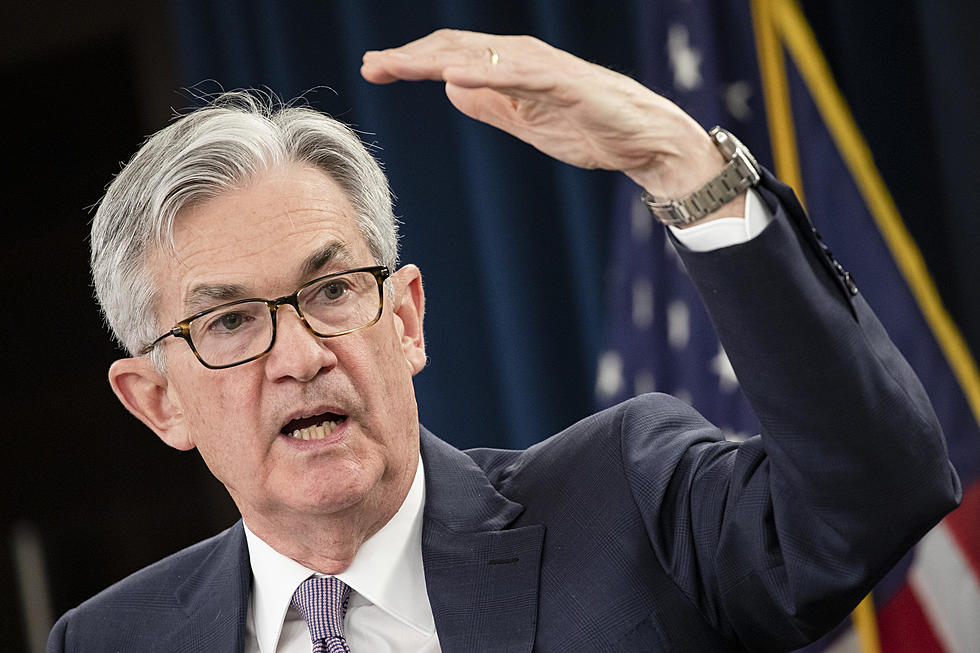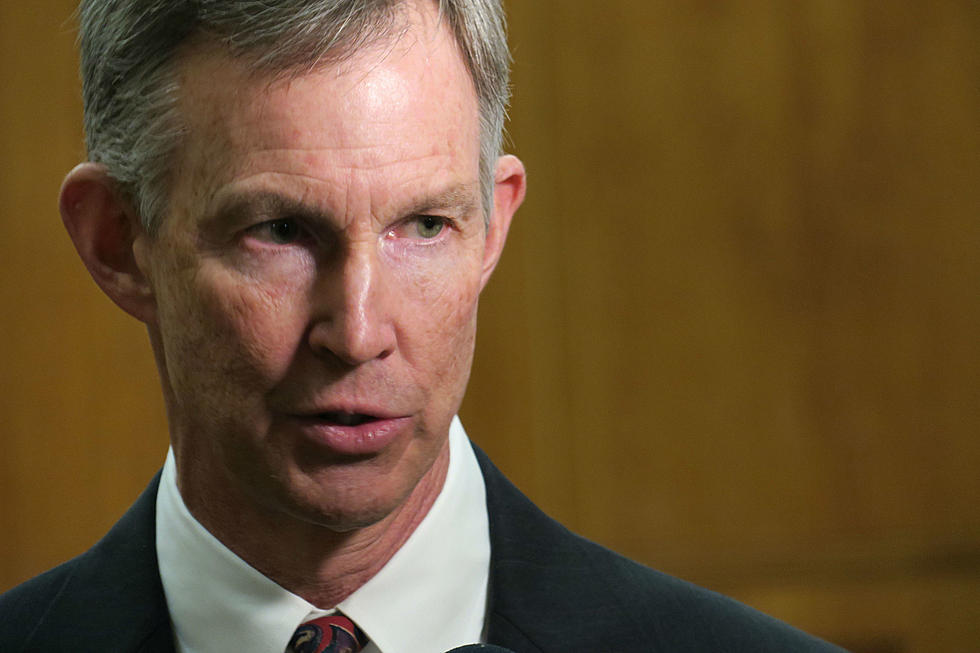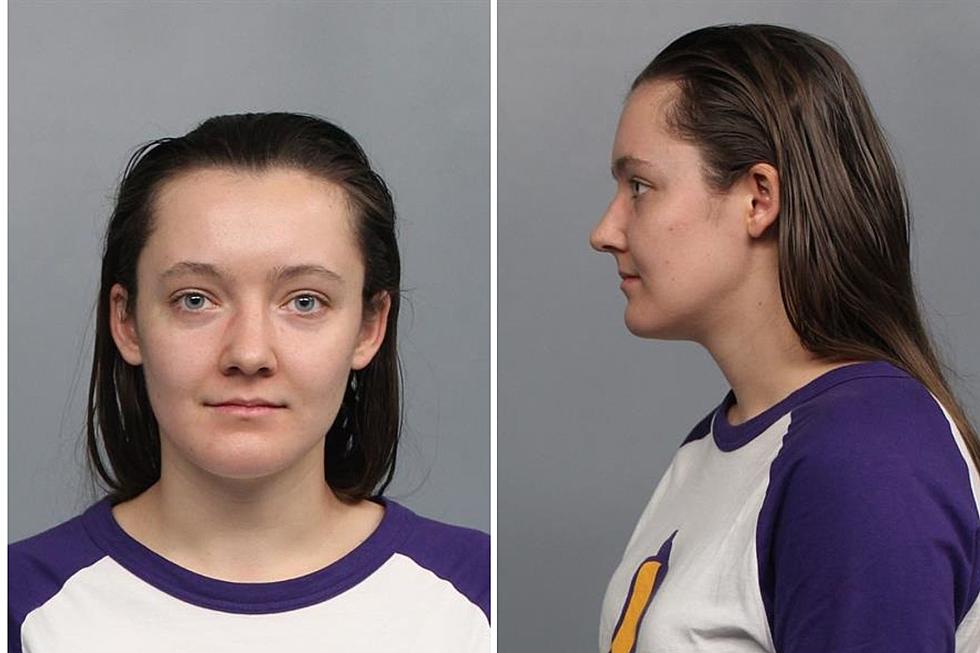
Wyofile Analysis of Election
By Gregory Nickerson
In a general election stacked with all-but-sure races that favored Republicans, Wyoming voters focused on education as the major contested issue of this election.
To some observers, the Superintendent of Public Instruction race between two political newcomers was the only competitive statewide race. In the end, Department of Family Services administrator Jillian Balow (R) had a solid victory over former Qwest communications executive Mike Ceballos (D).
In some respects, the Superintendent race repeated the broad Republican support that brought Cindy Hill to power in 2010. Yet in other ways, the race faced greater scrutiny because of the controversies that emerged between Hill and the legislature over the past four years. Balow prevailed despite strong campaigning by Ceballos, who outraised his opponent by two-to-one and completed a tour of all 48 school districts in the state.
Wyoming voters favored incumbents in Tuesday’s mid-term election, including Rep. Gerald Gay (R) who faced challenger Eric Nelson (D) in Casper. (Dustin Bleizeffer/WyoFile — click to enlarge
“I was in a contested primary election, and a contested and spirited general election,” Balow said. Her campaign focused on creating state-based initiatives and supporting local control. “We had a different message and, again, I am grateful to the voters of Wyoming.”
Ceballos congratulated Balow on her win. “We are all focused on improving education, and helping students to do all that they can do,” Ceballos said. “I certainly wish her success.”
Also in education, a ballot initiative to allow non-residents to serve on the board of trustees for the University of Wyoming failed, an indication that voters were not ready to embrace outside input in oversight of the state’s flagship institution.
WyoFile spoke with a number of voters who said no single issue brought them to the polls. Voters received ballots with numerous uncontested races, but still felt important to make their voice heard.
“I can’t say there was a single driving issue,” said Frank Boley of Big Horn. He said he cast a ballot, “just to be an active voter and do my part. There was no single issue on the agendas of anyone who was running.”
David Walker was one of more than 650 who cast ballots at the local Woman’s Club in Big Horn. The small log building is headquarters for the largest precinct in Sheridan County. Walker rode his bike two miles on the mild November evening to arrive at the polls.
“Voting is our greatest freedom in this country and any time we have the opportunity to vote, we should vote,” Walker said. “It is what gives us a free society.”
In Casper, several voters said they wanted their voices heard on the optional 1 cent sales tax ballot measure. Education issues were also among their priorities in casting their votes.
“I wanted to make sure that that went through,” said Mandi Wymore, who cast her ballot in Casper’s largest precinct on the east side. “And I care about who is in for Superintendent (of) Public Instruction, and who is representing our ward.”
Bill Edwards of Casper said education was his top priority when voting Tuesday. “I think it’s a critical part of what we do as folks in Wyoming; preparing our young folks to pursue what they want to pursue as they go through their lives, to be able to compete in global markets.”
Brian Husske, of Big Horn, brought his frustrations with national politics to the polls. “I want to make it all Republican,” Husske said. “I don’t think that our country has been running very good, the way it’s going. We need some good honest people in there, and so far I haven’t seen that.”
Most races for statewide office brought easy wins for Republican candidates. Sen. Mike Enzi, Rep. Cynthia Lummis, state Treasurer Mark Gordon, and Auditor Cynthia Cloud all won reelection.
The race for governor turned out as many expected. A last-minute write-in campaign from from unsuccessful GOP primary candidate Taylor Haynes did not take enough votes from incumbent Matt Mead (R) to provide an advantage to minority party candidate Pete Gosar (D).
In the Secretary of State race, Cheyenne property developer Ed Murray won with a strong showing, carrying the momentum from his well-funded primary race, which he self-funded to the tune of $400,000, the most in personal funds ever raised by a candidate running for that office.
Superintendent race
Shortly after 9 p.m. Superintendent candidate Balow took a lead of 11,000 votes with about half of precincts reporting statewide. By 9:40 her lead had grown to nearly 20,000 votes. At the end of the night she had captured 61 percent of the vote, or 97,399 ballots next to the 61,529 that went to Democratic candidate Ceballos.
“From the moment I announced that I would be running I talked about healing a fractured education system and moving education forward,” the superintendent-elect said. “Wyomingites are very engaged in education issues across the board, and that is a very good place for our state to be going into this position.”
When Balow takes office she plans to reopen a conversation between the State Board of Education and the public about the Common Core standards. She called for building consensus on the issue, “so we have standards made by our state, not by a few on behalf of our state.” Balow said she looks forward to working with the Legislature and seeking districts that can model successful practices.
Despite being outraised by Ceballos two to one, Balow said her frugal grassroots campaign, her message, and hard work won the day.
Ceballos said he was disappointed by the loss, even as he felt pleased with the work done by his campaign. “It’s so sad,” he said. “It would have been great a job to have. I had great conversations with the districts and was excited about it, but I think we did a fine job. I’m real pleased about that. I just wish we could have won.”
Despite the loss, Ceballos said he will continue to serve on six boards relating to education. “As much as you want to be the solution you can’t take your marbles and go home,” he said. “I’ll continue to be involved. It is what I like.”
Ceballos called the campaign a major learning experience. “I have never done this before and there is so much I’ve have gotten out of it,” he said. “You meet so many people with ideas who are willing to share and talk with you. It was very positive. The last eight weeks has truly been a kick in the pants, a really fun thing, and I am glad I did it.”
Voters believed the superintendent’s race featured two solid candidates.
“I voted for Jillian Balow simply because people who know her felt she would be an excellent advocate for our public schools,” said Walker, the cyclist in Big Horn.
Sally Morton of Big Horn said she voted for Ceballos. “I’ve heard real good things about him and he strikes me as a very capable person, and I think he would be a very healthy change.”
Wymore, of Casper also voted for Ceballos. “I went with Ceballos because I feel like even though the other one was a teacher, he had the full backing of the union of teachers, and he also seems to have a lot more business experience,” she said. “Managing a school is not only education” but making sure funds are spent efficiently, she added.
Teton County went for Ceballos in his losing effort, backing him 52 percent to 40 percent.
“He had the leadership traits I think will do a good job for us,” said Mary Martin, UW extension agent for five southwest counties.
Jackson’s Mandy Bellorado also supported Ceballos. “I just like what he wrote,” she said.
Tracy Lamb, another Teton County long-timer, also was on his side. “I voted Democratic just because Republicans have run it for a while and messed it up.”
No out-of-state trustees for university
The state overwhelmingly defeated proposed Constitutional Amendment A, which would have allowed up to 20 percent of the members of the board of trustees to be non-residents. Some 112,772 voted against the amendment, while 47,539 supported it.
“I just think there are just too many outside influences coming into Wyoming,” said Leo Oneyear, who voted in Big Horn. “We need homegrown people for our university.”
Opinion on the amendment was strongly opposed almost everywhere in the state. Some 70 percent of Wyoming voters rejected the referendum on allowing out-of-state trustees.
“I guess the thing that irritates me right now, we’ve got to do better than we got from in-state,” said Roy Garber of Big Horn. “They’ve got a pretty weak board right now. … I just have a hard time believing we can’t come up with qualified people in the state of Wyoming.”
Some 400 miles from the university in Laramie, Teton County was the only county on the other side of the issue, favoring the amendment 50 percent to 40 percent.
Book store owner Steve Ashley didn’t see a problem with out-of-staters, “as long as it’s 20 percent,” he said, noting the limit that would have been imposed. “I thought it was a good idea,” he said. “It doesn’t hurt to get a broader point of view.”
Sally Morton of Sheridan County agreed. “I can’t help but think there are very many qualified University of Wyoming alumni (who live elsewhere) that would serve well and serve the university well,” she said. “To limit it to just the state is restricting perhaps the potential good influences on the university.”
Some voters in Casper saw an advantage to adding out-of-state trustees to the university.
“Anytime you have an institution or something you want to compete nationally, you have to open up the resources you can use for that institution,” said Don Zimmer, of Casper. “I think that by allowing the governor to nominate a couple of people from outside the state, I think it really increases its capabilities and its abilities to attract national attention to our university.”
Lyn Dalebout from Teton County was open-minded. “I just like the idea of trying something new,” she said. Jackson’s Ian Barwell didn’t vote on the amendment. “I didn’t want to vote on something I hadn’t researched.”
Governor’s race
Gov. Matt Mead (R) easily won reelection, showing that the political scrapes of his first term were not nearly enough to unseat a broadly popular Republican in one of the most conservative states in the country. Earlier this year, University of Wyoming political scientist Jim King predicted that only a major scandal could diminish Mead’s chances in the primary and general reelection, and the results of yesterday’s election bore that out
In the weeks before the election, Mead received endorsements from the Wyoming Tribune Eagle and the Casper Star-Tribune. Both papers took the opportunity to point out areas where they thought Mead had misstepped, particularly on his opposition of Medicaid expansion and same-sex marriage, and in his support of closed searches for the University of Wyoming president. The editorial boards also criticized Mead for his support of Senate File 104, which transferred nearly all the duties of the Superintendent of Public Instruction to an appointee until the state Supreme Court ruled against the law.
Mead said that he appreciated the endorsements, while also taking note of the criticism. “I think it is incumbent on me and the Legislature when we see those areas of criticism to take those to heart and consider those.”
WyoFile spoke with Gosar just after the polls closed Tuesday evening. “Whether you win or lose you want to stay around and see the change, see Wyoming live up to the Equality State motto, and diversify the economy. I think that needs to happen. I think people in Wyoming deserve a better shot.”
The campaign taught Gosar the extreme power of the “home-field” advantage incumbents have in Wyoming, he said. He was disappointed to see the state’s two largest newspapers point out Mead’s major policy weaknesses and yet endorse him anyway. “It’s not only politics that needs to change in Wyoming.”
Some voters believed Mead’s performance, if not totally to their liking, was still satisfactory. “Although I tend to disagree with Mead on some things, I still think he was the best,” said Oneyear.
At the same time, voters seemed to appreciate that the state’s economy is prospering, and unemployment is low. Mead has reined in spending, and taken positions against the U.S. Environmental Protection Agency and the federal government that sit well with many small-government conservatives.
“I think Matt Mead has done a good job and I’d like to see him continue,” Boley said.
Still, about 40 percent of voters cast their ballot for Mead’s challengers, Pete Gosar (D), Don Wills (I), and Dee Cozzens (L).
“I voted for Gosar, the Democrat, knowing probably there was little likelihood he’ll get into the office,” said Morton in Big Horn. “But from what I’ve seen of him I think he’d make a good governor and I’ve had some disappointments with Matt Mead as governor.”
Some of the positions Gosar took during his campaign reflect growing trends of public opinion across the state. A recent University of Wyoming poll found that 56 percent of respondents supported expanding Medicaid, while 36 percent opposed it, with an error margin of 4 percent. Gosar supported Medicaid expansion, and criticized Gov. Mead for only recently moving to negotiate with the Center for Medicaid services on a possible expansion plan.
“If you look at the polling results from the University of Wyoming, on issues like the Medicaid expansion, once they (residents) found out the deal they couldn’t believe we didn’t expand it,” said Gosar. “The people of Wyoming are a reasonable lot and once they know the deal … they’re further ahead than the politicians.”
Mead noted his appreciation for the electoral process and the efforts made by his opponents. “Our system of government requires people to step up, and you can agree or disagree with them, but our system requires participation,” Mead said. “It is not an easy thing to put your name out there and stand up for your ideas. But I am pleased for those that opposed me to step up and I encourage others to step up for future races.”
As Mead crafts his supplemental budget for the 2016 fiscal year, due Dec. 1, he says the revenue outlook is good. “We are certainly going to have some available money, and we are going to be in absolutely good shape going into the supplemental (legislative session) to make some good steps with some of my priorities,” he said.
Analysis of selected legislative races
Democrats in the House won three seats held by Republicans. Charles Pelkey of Laramie, Andy Schwartz of Jackson, and Joann Dayton of Rock Springs beat their Republican opponents.
Republicans won two seats previously held by Democrats. Jim Allen (R) beat Andrea Clifford (D) in Fremont County in the district of retiring Rep. Patrick Goggles (D), and Harlan Edmonds (R) beat Lee Filer (D) in Cheyenne.
Overall, Democrats gained one seat in the Wyoming House, giving them nine seats in the next session to the 51 Republicans will hold. In the Senate the party balance remained unchanged at 26 Republicans and 4 Democrats.
Social conservatives and Tea Party candidates for House held on in Natrona County and unseated a Democrat in Laramie County.
Rep. Gerald Gay (R-Casper), known for his opposition to same-sex marriage, beat challenger Eric Nelson by about 170 votes.
In Cheyenne, Harlan Edmonds (R), founder of the group Conservative Republicans of Wyoming (C.R.O.W.) unseated freshman legislator Rep. Lee Filer (D), who had sponsored several successful bills during his first term.
Sweetwater County played host to a number of races between social conservative incumbents and Democratic challengers. In Rock Springs, Rep. Stephen Watt (R) lost his seat to JoAnn Dayton (D) while Rep. Mark Baker (R) held on by 27 votes over challenger Joe Barbuto (D). Incumbent Rep. John Freeman (D) defeated challenger Bill Hooley (R), husband to Christy Hooley, a leader in Wyoming Against the Common Core.
In neighboring Uinta County, Rep. Alan Jaggi (R) and Rep. Garry Piiparinen (R) both won reelection. In Natrona County, Rep. Gerald Gay (R) bested challenger Eric Nelson to win another term.
In Jackson Hole and Star Valley, Democratic candidate Natalia Macker briefly led Rep. Marti Halverson (R) with less than half of precincts reporting. However, a strong showing in Halverson’s home area of Star Valley gave her the win.
In Fremont County, two Democratic candidates who are enrolled members of the Northern Arapaho lost their races. Sen Cale Case (R) earned a 1,000 vote margin to beat Sergio Maldonado (D). Case, an economist, was recently diagnosed with cancer. Jim Allen (R) beat Andrea Clifford (D) in House District 33, the seat previously held by Rep. Patrick Goggles (R-Ethete), who announced his retirement earlier this year.
Allen ran unsuccessfully against Goggles in a previous election. Allen’s win this year means there will be no enrolled Tribal member serving in the Legislature in 2015-2016.
More From K2 Radio









